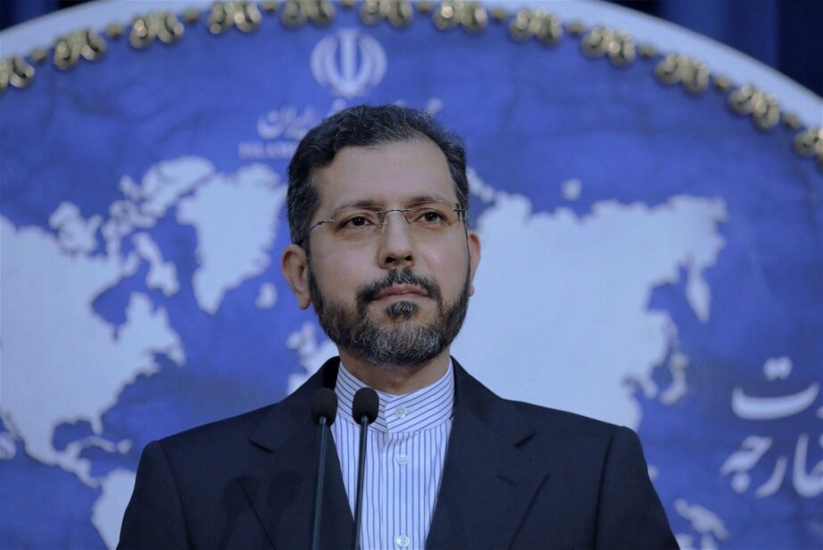Iran welcomes ceasefire deal between Libya’s warring factions

The agreement was signed on Friday at the United Nations in Geneva at the end of a weeklong meeting of delegates from the internationally recognized Government of National Accord (GNA) and the self-styled Libyan National Army (LNA) led by Khalifa Hifter.
In a statement on Saturday, Khatibzadeh appreciated the role of the United Nations and the Libyan negotiating parties in clinching the agreement, expressing hope that the ceasefire would be lasting and that all parties would live up to their commitments.
Emphasizing the need to cut off foreign interference in the process of negotiations between the negotiating parties in Libya, Khatibzadeh reiterated Iran's opposition to a military solution to the crisis and called for the settlement of the Libyan crisis through dialogue.
Stephanie Williams, the acting head of the United Nations mission in Libya who was chairwoman of the most recent talks, described the ceasefire deal as “an important milestone for Libya and for the Libyan people.”
She expressed hope that the ceasefire agreement “will end the suffering of the Libyan people and enable those in the diaspora and internally-displaced persons scattered to return to their homes and live in peace and safety.”
The United Nations Support Mission in Libya (UNSMIL) said in a statement on Friday that the ceasefire agreement is “complete and permanent” and does not apply to UN-designated terrorist groups, adding that “With immediate effect and until the new unified government assumes its functions, all military agreements on training inside Libya shall be suspended and training crews shall leave Libya’s territory.”
The agreement establishes a security and operations room which shall propose and implement special security arrangements to secure the areas cleared of military units and armed groups the agreement also foresees the establishment of a limited military force of regular military personnel under the security and operations room to deter violations of the ceasefire, according to the UNSMIL statement.
Under the ceasefire agreement, the parties agreed, with support and participation of the United Nations, to immediately start the identification and categorization of all armed groups and entities on the entire Libyan territory, whether integrated into state institutions or not. The agreement also stipulates that a mechanism and conditions shall be developed to ensure reintegration, on an individual basis, of their members into state institutions.
The agreement also foresees the establishment of a mechanism to monitor, jointly with UNSMIL, the implementation of the ceasefire agreement. The parties requested UNSMIL to forward the ceasefire agreement to the Security Council and to request the Council to adopt a resolution to ensure compliance of all internal and external parties with this permanent countrywide ceasefire.
Libya has long been torn apart between the GNA and LNA for years, a conflict that has drawn foreign interference, making a political settlement to the crisis harder than ever. However, after years of infighting, Libyan warring factions appear to be ready for setting aside their differences and taking a new path that could lead to a peaceful resolution of the decade-long Libyan crisis.
Source: Tehran Times

